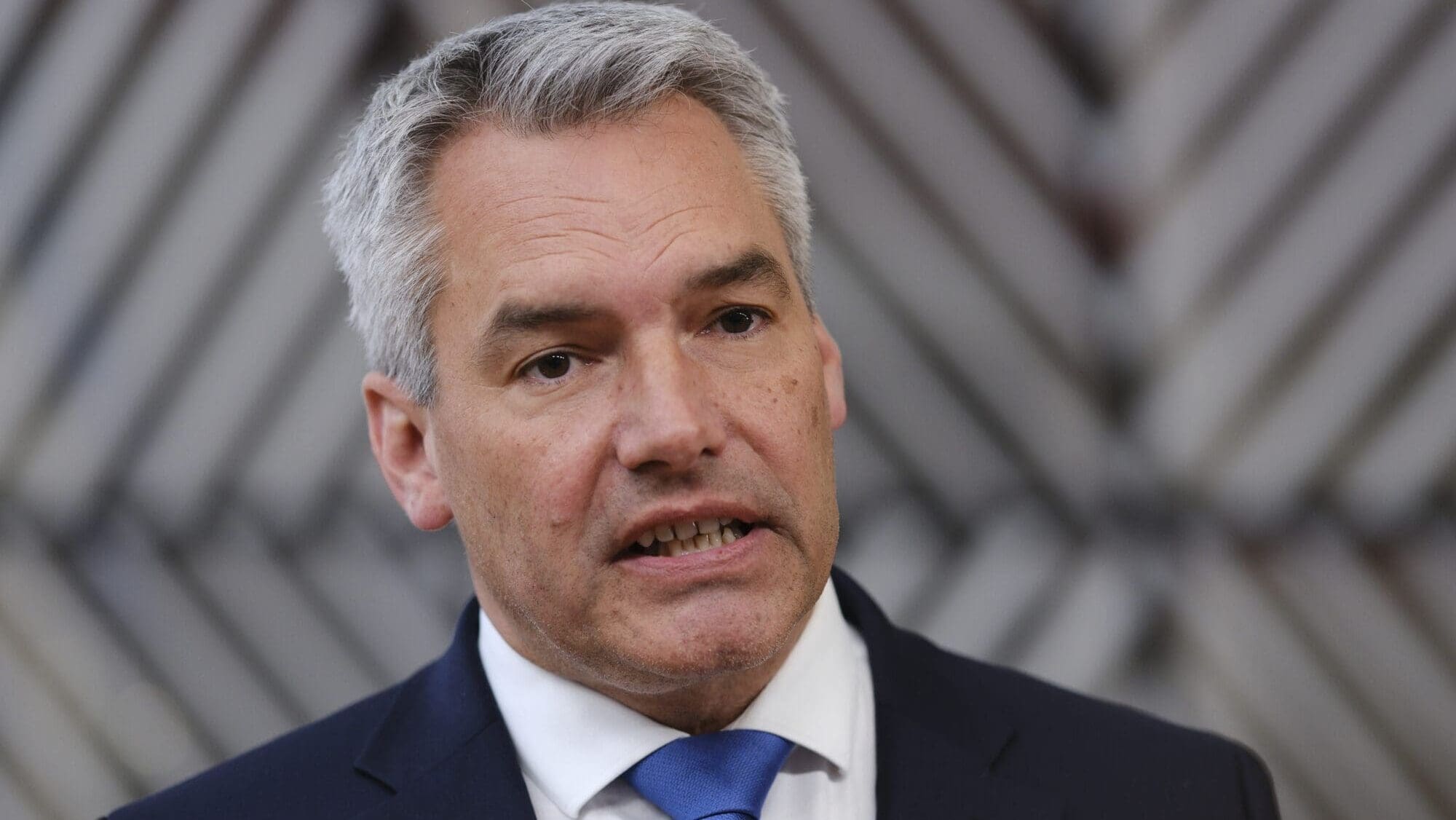
Austrian Chancellor Karl Nehammer
Photo: © European Union
Austria’s ÖVP (Austrian People’s Party) government has joined Belgium’s last-minute calls to speed up the Article 7 procedure against Hungary with the harshest consequence in mind: suspending the country’s voting rights and therefore stripping it of its veto power right before it has a chance to set the common agenda during its imminent EU presidency.
Chancellor Karl Nehammer’s apparent backing of this measure against Budapest is surprising, given the two conservative governments’ nominally friendly relationship and close cooperation in combating illegal migration as well as in other fields.
Moreover, during a meeting of the two defense ministers in Budapest earlier this year, the neutral, non-NATO member Austria joined Hungary in its criticism of endless arms shipments to Ukraine that might escalate the conflict and drag Europe into it.
As we reported, Belgium’s foreign minister Hadja Lahbib on Monday initiated a last-minute crusade against Hungary’s conservative government, which is set to assume the EU Council’s rotating presidency from July to December.
In order to eliminate the threat of further Hungarian vetoes, especially those preventing military aid to Ukraine, Lahbib urged the other EU member states to “go right to the end” of the Article 7 procedure and take the so-called ‘nuclear option‘ which entails suspending certain membership rights, including the right to vote. The Article 7 procedure against Hungary was opened in 2018 for alleged ‘rule-of-law’ violations, but in reality—which Lahbib’s Monday statements made clear—was simply a way for Brussels to punish the country for not toeing the line on progressive EU policies.
While the vast majority of member states do not feel comfortable with potentially creating a dangerous precedent by using the instrument for the first time in EU history, one country responded positively to the Belgian call.
“We expect all 27 members to fully uphold the principles on which our common Union is based,” an Austrian foreign ministry spokesman commented. “This is particularly true for the incoming EU presidency. With this in mind, we support the rigorous continuation of the Article 7 procedure against Hungary.”
In Hungary, officials condemned Lahbib’s statements, saying that in its “war frenzy,” Brussels wants to eliminate “the last obstacle” preventing Europe from drifting into war with Russia.
“The European people can still pull the emergency brake on this pro-war train on June 9th, but it is clear that Brussels will continue to do everything in its power in its last few days to silence all those who speak for peace and against war,” Hungary’s foreign minister, Péter Szijjártó commented in response to Lahbib’s remarks.
It would be unwise for Chancellor Karl Nehammer’s ÖVP to suddenly alienate an old friend right before the EU elections, given that the party could be ejected from power in favor of the much more right-wing, Eurosceptic, and sovereigntist Freedom Party (FPÖ) in the general election later this year.
With the European Parliament elections just a few days away, Nehammer’s ÖVP has dropped to third place with 20%. The governing party has been overtaken in the polls by both the social democrats (SPÖ) with 22%, and the EU elections’ projected winner, the FPÖ with 29%, which is expected to add six seats to the right-wing populist Identity and Democracy (ID) group’s total.
In Austria, the EU elections are mainly seen as the rehearsal for this fall’s general election, which the Freedom Party is also expected to win, albeit short of creating a government of its own.
